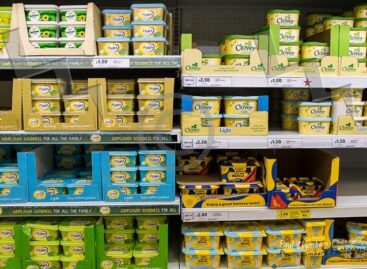Magazine: Consumer expectations for 2018: it won’t get better, it won’t get worse
In January 2018 Kantar Hoffmann conducted a representative survey in Hungary, with the participation of 1,100 adults, about what consumers expect in 2018. It matters a lot whether a country’s population is optimistic or not, because people’s sentiment influences the performance of wholesalers and retailers. This year is even more important to know what consumers think, as there will be parliamentary elections in April.
In general we can say that Hungarians are rather satisfied with their lives: the majority of respondents, 58 percent said their situation is a bit better than medium. However, 36 percent of adults expressed a negative opinion when asked about their lives. Three quarters of Hungarian adults feel that they spent just as much money last year as they could afford. Who spent the least money in comparison with their funds? Those with a university degree and consumers with a relatively high income. It is noteworthy that those who spent a bit more than they could afford in 2017 think that they will be able to reduce their expenses in 2018. Those who hope that they will be able to spend more this year than in 2017 tend to be highly educated Budapest dwellers, with an income above the average.
Kantar Hoffmann asked participants how much they plan to spend in 14 product and service categories. The majority of respondents believe that they will spend the same amount of money on these products as last year. Pastry, sweets, household appliances and alcoholic drinks – these are the categories where more consumers than the average think that they can cut back on their spending. Consumers older than 64 years are of the opinion that they will spend less on fresh and organic food, and on cosmetics in 2018.
The fact that one intends to spend more, less or the same amount this year tells little about people’s expectations about the economic situation: it also needs to be known whether they calculate with a price increase or decrease for 2018, do they think the country’s situation will improve or turn to the worse. Only 9-15 percent of respondents were of the opinion that the general situation will become worse in Hungary. Most people, 40 percent of the survey’s participants hope that salaries will increase this year. 30-33 percent believe that the situation will get better in the fields of employment, economic indicators, working conditions and financial perspectives. Fewer adults calculate with an improvement of their own living conditions: 58-74 percent reckon the present conditions won’t get any better, but they won’t get worse either.
General expectations are influenced by one’s level of education: those who graduated from primary school or vocational school are less optimistic about an improvement (3.18-3.15) than those who have a GCSE or a college/university degree (3.29-3.31). As for the different regions, East Hungary is the most optimistic (3.42), while the South West and the West are those areas where people don’t believe in a positive trend as much (3.11-3.13). How satisfied a person is with their own situation is greatly influenced by what their expectations are for 2018. Those who are less satisfied with their lives now think the improvement will be small in the country’s situation, and they can even imagine that their own lives will become a bit worse.
Kantar Hoffmann also wanted to know what Hungarian adults think about the price trends of basic products. Men and consumers in the 18-24 age group don’t really search for promotions. The survey’s results revealed that 91 percent of North Hungary dwellers search for promotional prices – in this respect consumers in West Hungary were the least active. Basically in every product category, the relative majority of respondents calculate with prices staying the same in 2018. Although in certain product categories shoppers expect a price increase, this is compensated for by lower prices in other categories. Typically 18-24 year olds and women in the 35-44 age group can imagine a drop in product prices, those who live in villages in East Hungary or on the Great Hungarian Plain. //
Related news
Hungarian SMEs need more information on ESG requirements
A recent research by Billingo has found that 67% of…
Read more >Most online shoppers are fed up with unpredictable parcel delivery times
According to a recent Ipsos survey commissioned by DODO, it…
Read more >Consumers have reached the limits of their capacity
In August 2024 RRD came out with its Awareness-to-Action Study…
Read more >Related news
Plant-based brands risk losing consumer interest, says Flora exec
Flora Food Group marketing director Ian Hepburn has warned that…
Read more >Albertsons Terminates Merger With Kroger
Albertsons has terminated its $25-billion (€23.7 billion) merger agreement with Kroger after…
Read more >Zalando acquires rival About You
Zalando is buying out its German competitor About You. Both…
Read more >







